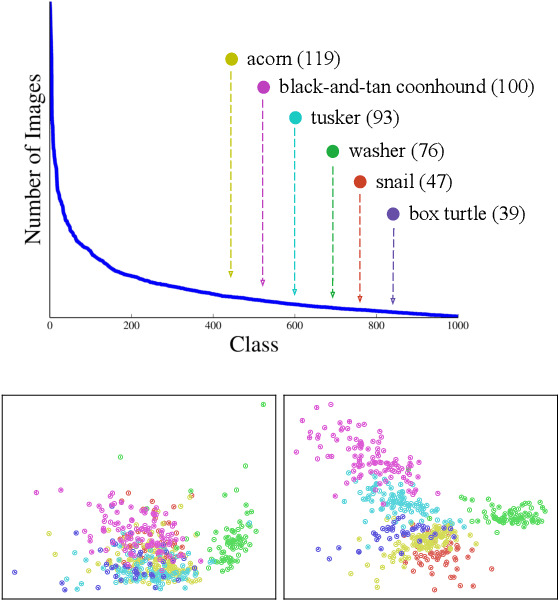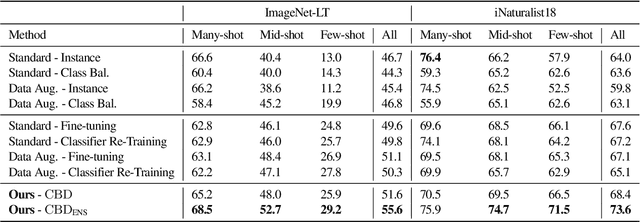Class-Balanced Distillation for Long-Tailed Visual Recognition
Paper and Code
Apr 12, 2021



Real-world imagery is often characterized by a significant imbalance of the number of images per class, leading to long-tailed distributions. An effective and simple approach to long-tailed visual recognition is to learn feature representations and a classifier separately, with instance and class-balanced sampling, respectively. In this work, we introduce a new framework, by making the key observation that a feature representation learned with instance sampling is far from optimal in a long-tailed setting. Our main contribution is a new training method, referred to as Class-Balanced Distillation (CBD), that leverages knowledge distillation to enhance feature representations. CBD allows the feature representation to evolve in the second training stage, guided by the teacher learned in the first stage. The second stage uses class-balanced sampling, in order to focus on under-represented classes. This framework can naturally accommodate the usage of multiple teachers, unlocking the information from an ensemble of models to enhance recognition capabilities. Our experiments show that the proposed technique consistently outperforms the state of the art on long-tailed recognition benchmarks such as ImageNet-LT, iNaturalist17 and iNaturalist18. The experiments also show that our method does not sacrifice the accuracy of head classes to improve the performance of tail classes, unlike most existing work.
 Add to Chrome
Add to Chrome Add to Firefox
Add to Firefox Add to Edge
Add to Edge